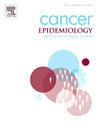性传播感染与前列腺癌之间关系的综合评估:经验研究、综述和荟萃分析的范围综述
IF 2.4
3区 医学
Q3 ONCOLOGY
引用次数: 0
摘要
我们对性传播感染(STIs)与前列腺癌的关系进行了范围审查,并确定了知识空白。检索四个数据库(Medline, Embase, Scopus和Cochrane)确定了286条符合条件的记录。大多数实证研究(n = 191)是横断面研究(n = 66)和病例对照研究(n = 52)。研究最多的性传播感染是人乳头瘤病毒(HPV)( = 82)、人类免疫缺陷病毒(HIV)( = 52)和单纯疱疹病毒(HSV)( = 30)。我们纳入了68篇叙述性综述、10篇系统综述和17篇元分析。大多数效应估计(优势比、危险比、风险比和标准化发病率)不支持性传播感染和前列腺癌之间的关联:591个效应估计中分别有373个和218个高于零值和低于零值,但艾滋病毒除外,108个估计中有74个低于零值。知识缺口包括病例对照研究,对降低前列腺癌风险的hiv相关机制的见解,支原体和脲原体的研究,对与其他性传播感染合并感染的调整研究,以及评估性传播感染是否使男性易患更具侵袭性的前列腺癌的研究。确定的一个关键研究重点是需要更多的证据来证明驱动感染介导的前列腺癌发生的生物学机制。本文章由计算机程序翻译,如有差异,请以英文原文为准。
Comprehensive appraisal of the association between sexually transmitted infections and prostate cancer: A scoping review of empirical studies, reviews, and meta-analyses
We performed a scoping review on the association of sexually transmitted infections (STIs) with prostate cancer and identified knowledge gaps. Searching four databases (Medline, Embase, Scopus, and Cochrane) identified 286 eligible records. Most empirical studies (n = 191) were cross-sectional (n = 66) and case-control (n = 52). The most studied STIs were human papillomavirus (HPV) (n = 82), human immunodeficiency virus (HIV) (n = 52), and herpes simplex virus (HSV) (n = 30). We included 68 narrative reviews, 10 systematic reviews, and 17 meta-analyses. Most effect estimates (odds ratios, hazard ratios, risk ratios and standardised incidence ratios) did not support an association between STIs and prostate cancer: 373 and 218 of 591 effect estimates were above and below the null, respectively, except for HIV where 74 of 108 estimates were below the null. Knowledge gaps included case-control studies, insights into HIV-related mechanisms for a lower risk for prostate cancer, studies on Mycoplasma and Ureaplasma, studies adjusting for co-infection with other STIs, and studies assessing whether STIs predispose men to a more aggressive form of prostate cancer. A key research priority identified is the need for more evidence on the biological mechanisms driving infection-mediated prostate carcinogenesis.
求助全文
通过发布文献求助,成功后即可免费获取论文全文。
去求助
来源期刊

Cancer Epidemiology
医学-肿瘤学
CiteScore
4.50
自引率
3.80%
发文量
200
审稿时长
39 days
期刊介绍:
Cancer Epidemiology is dedicated to increasing understanding about cancer causes, prevention and control. The scope of the journal embraces all aspects of cancer epidemiology including:
• Descriptive epidemiology
• Studies of risk factors for disease initiation, development and prognosis
• Screening and early detection
• Prevention and control
• Methodological issues
The journal publishes original research articles (full length and short reports), systematic reviews and meta-analyses, editorials, commentaries and letters to the editor commenting on previously published research.
 求助内容:
求助内容: 应助结果提醒方式:
应助结果提醒方式:


